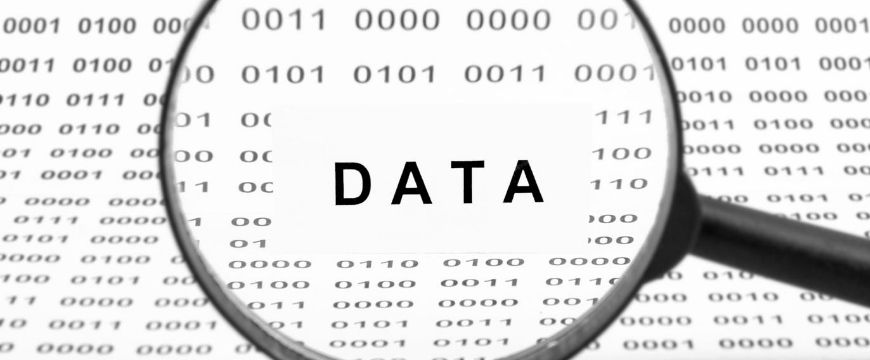All subjects get more challenging as you progress through high school, and the difficulty goes beyond just having to remember more information. What you need are some processes to study science effectively.
As you take on Stage 5 and especially Stage 6, you might start to find that the exam preparation techniques you developed in earlier years are no longer getting you the same results. This can lead to disappointment but also a sense of uncertainty – “How can I fix this?”
To help you here are 3 hot tips to study science effectively
Doing more of the same is unlikely to help, and you will find yourself putting in a lot of time for little reward. To raise your marks, you need to change your approach.
In this article, we present short-term as well as long-term strategies to enhance your understanding, your ability to respond to questions, and hopefully your enjoyment of the subject.
Table of contents:
- Memorising is not enough
- Stop reading and start writing
- Don’t wait for an assessment – test yourself
- Remember that theoretical knowledge is not the only goal
Key point: memorising is not enough!
You often hear from your teachers that you shouldn’t rely on memorisation to do well in a subject. Why is this the case?
On a practical level, the amount of content per course vastly increases as you go up a year level and it just becomes more difficult to remember everything.
The real reason, however, is that understanding becomes more important than knowing.
If you pursue a career in science, you will often find yourself in situations where you’re trying to answer a question that has never been investigated before, so you can’t rely on repeating someone else’s method or looking up the answer.
You need to take familiar ideas and combine and interpret them in new ways. This is part of your training when studying science at school – to go from repeating facts to applying them in new scenarios.
Science is a process, not just a body of knowledge.
Some tricks here and there to jog your memory are handy, like a silly acronym or a song in your head, but nothing is a substitute for really understanding the material.
Formula sheets, data sheets and periodic tables are useful in reducing the amount of memory required, but remember – they are just tools and not a replacement for studying.
You need to know which equations are used to solve each type of problem you may encounter and understand the relationships between quantities.
For example, Physics uses the symbol T to represent temperature, period and tension in different contexts; if you are blindly choosing equations to solve a problem, you could end up completely off track!
So what are some practical ways to increase your depth of understanding?

1. Stop reading and start writing
Reading textbooks and notes is an unproductive and inefficient way of getting information into your brain. While it is useful as an introduction to a topic or to remind yourself of what is required, you should spend the minimum amount of time on this step.
a. Write by hand
Writing, especially by hand, improves retention by making you think in greater detail about the words.
Practise responding to the syllabus dot points, even if you only have the time to do it in the form of short notes, flowcharts and tables.
b. Speak out loud
If you have the privacy, try answering conceptual questions out loud and recording your answers to listen to the playback.
Speaking out loud forces you to organise your thoughts; if you find yourself stuck or hesitating mid-sentence, it could be a symptom of a gap in your knowledge. You can even team up with a friend and take turns explaining things to each other.
c. Figure out the steps for quantitative calculation questions
You can apply a similar process to quantitative calculation questions. When you’re starting out with a new equation or a new method, don’t just read the worked examples; write out the steps for yourself.
Write or say out loud the reasons for each step.
d. Answer questions
Once you have looked at a few worked examples, step up to the next level of independence and try a question open-book style, using your notes to guide you if you get stuck.
Your eventual goal is to answer the question in a closed-book test with only your formula sheet for guidance, but you don’t have to get to that point all in one go.
e. Read widely
All of this is not to discount the other benefits of reading.
Wherever possible, expose yourself to different explanations and more perspectives on a topic by reading widely – just make sure that your information comes from a reputable academic source.

2. Don’t wait for an assessment – test yourself
In Stages 5 and 6, you should be growing in independence as a learner.
Your teacher will still be there to guide you through the subject matter and provide formal feedback assessment, but you will benefit greatly from taking responsibility for your own learning.
This will also prepare you for future study in any field, so the benefits are well worth the effort.
a. Seek a variety of questions
Once you have gone through the steps to develop your understanding, you should seek out a variety of questions: try textbooks and past papers from different schools.
Look for a range of difficulty and mark values.
Just as you did during the learning phase, write out your answers! Many students think they understand a topic, only to find that when they sit down to answer an exam that they are lost on how to proceed.
Start with some open book questions and once you’re confident, work your way up to answering an entire past paper under exam conditions.
If there are too many distractions at home, consider doing this at your school or local library.
b. Mark your own work
Mark your own work with a critical eye. Keep a note of where you’ve had to guess and don’t accept answers that are “close enough”.
Once you have a measure of your performance, you can take steps to improve.
It’s tempting to spend most of your time on the topics you like and are already doing well in, but your marks will benefit the most from focusing on your weaknesses; go back and figure out where the gaps are in your understanding and drill down on them.
It’s the academic equivalent of not skipping leg day.
c. Ask for help
Throughout all of this, remember to ask for help if you need it!
Your friends and teachers at school, as well as Matrix, are there to support you in your learning, present alternative perspectives and bounce ideas around.

3. Remember that theoretical knowledge is not the only goal
The syllabus for all science subjects includes a large section on ‘Working Scientifically’. As a scientist, you don’t just need to know existing theory – you have to plan and carry out investigations and be able to report your findings.
a. Identify formulas and quantities
Some people think first- and second-hand prac tasks are impossible to study for, but this is not true.
Even if you do not know what specific equipment you will be using in an experiment, you can think about the types of formulas and quantities that appear in the relevant module and plan ways to minimise systematic and random errors.
b. Data analysis
Another skill that you can brush up on is data analysis – that is, understanding how to take the measurements you either made or were given and derive some useful information.
This usually involves drawing and interpreting a graph.
By now you have drawn many graphs and found many lines of best fit, but in Year 11 and 12 you must also be able to understand what the line represents in relation to the variables. Many students who are great at maths have trouble transferring those skills to other subjects, but maths is one of the most important tools in science.
Remember, your graph represents a function – the dependent variable is a function of the independent variable, and they are usually related by a known equation.
If you can rearrange that equation to express your y-axis in terms of your x-axis, then you can associate the rest of the terms with features such as the gradient and the y-intercept.
Note: Our Physics Study Guide covers data analysis in more detail and is recommended reading for anyone taking science subjects in Year 11 and 12.

Summary
A good student understands all the modules; a great student understands the underlying connections between them and can apply the principles from one topic to a problem in another.
This is something that comes with experience, and it can definitely be learned!
The more you prepare, the more you can foresee the challenges you might face in assessments and exams and be ready when they arrive. No matter where you are in your studies, you can start taking steps today to improve your marks.
